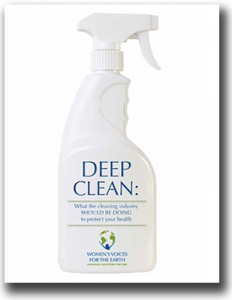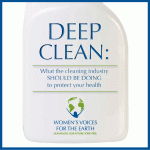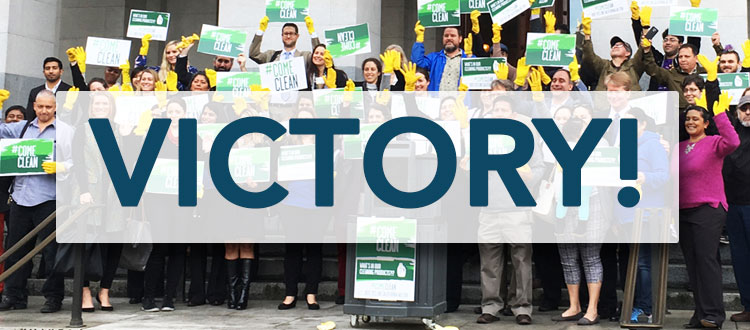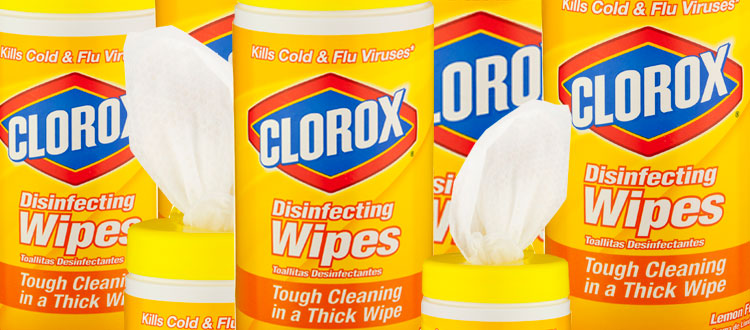Deep Clean Report: What the cleaning industry should be doing to protect your health

With words like trusted, family, quality, healthy and responsible commonplace throughout their branding and advertising, it’s clear that companies care about gaining the trust and loyalty of the American consumer. But – as our report Deep Clean illustrates – cleaning product companies use the lack of industry regulations as a loophole to keep customers in the dark about how they screen of dangerous chemicals and their overall standards of product safety.
The report rates four major clean product manufacturers on their Product Ingredient Disclosure, Responsiveness to Consumer Concerns, Toxic Chemical Screening Process and Removal of WVE’s Chemicals of Concern. The companies are:
- SC Johnson & Son (makers of Pledge, Shout, Windex, Glade, Scrubbing Bubbles)
- The Clorox Company (makers of Clorox, Pine-Sol, S.O.S., Tilex, Liquid-Plumber, Green Works)
- RB (formerly Reckitt Benckiser) (makers of Woolite, Lysol, Finish, AirWick, Old English)
- Procter & Gamble (makers of Tide, Cascade, Dawn, Mr. Clean, Dreft Laundry, Febreze, Gain, Cheer)
Studies reveal that consumers, especially women, are spending their money on brands that reflect their concerns for safe products. Specifically, between 2007 and 2011, retail sales of green cleaners doubled from $303 million in annual sales to $640 million. A 2014 survey found that 81% of respondents make purchasing choices with product safety in mind, but only 42% believe companies are doing enough to make products safe. Furthermore, mothers in particular express how important safer products are to them, with 70% of mothers saying they ‘would buy more of a specific brand if they were aware of its positive impacts.’
While consumers are demanding safer products, little regulation exists in the U.S. to limit or control the use toxic chemicals in consumer products. Until federal and state regulations set safety and transparency standards, it’s up to companies to set their own safety standards for products.
Deep Clean provides the clear framework of what consumers expect an effective screening process to look like. Critical to this framework is the simple task of publishing a company’s safety criteria in a transparent way.
Major findings
- None of the four companies are fully transparent about the criteria included in their ingredient safety standards. How a company picks and chooses which ingredients are safe and which should be avoided cannot be a matter of taking their word for it.
In short: Show. Don’t tell.
- SC Johnson is one of the only major companies still using hormone disrupting synthetic musks, calling into question the integrity of its GreenlistTM screening process.
- The good news: Since WVE launched its Safe Cleaning Products Initiative in 2007, manufacturers have made considerable strides towards removing certain toxic chemicals from their products and in publicly disclosing product ingredients for the first time on their websites.







